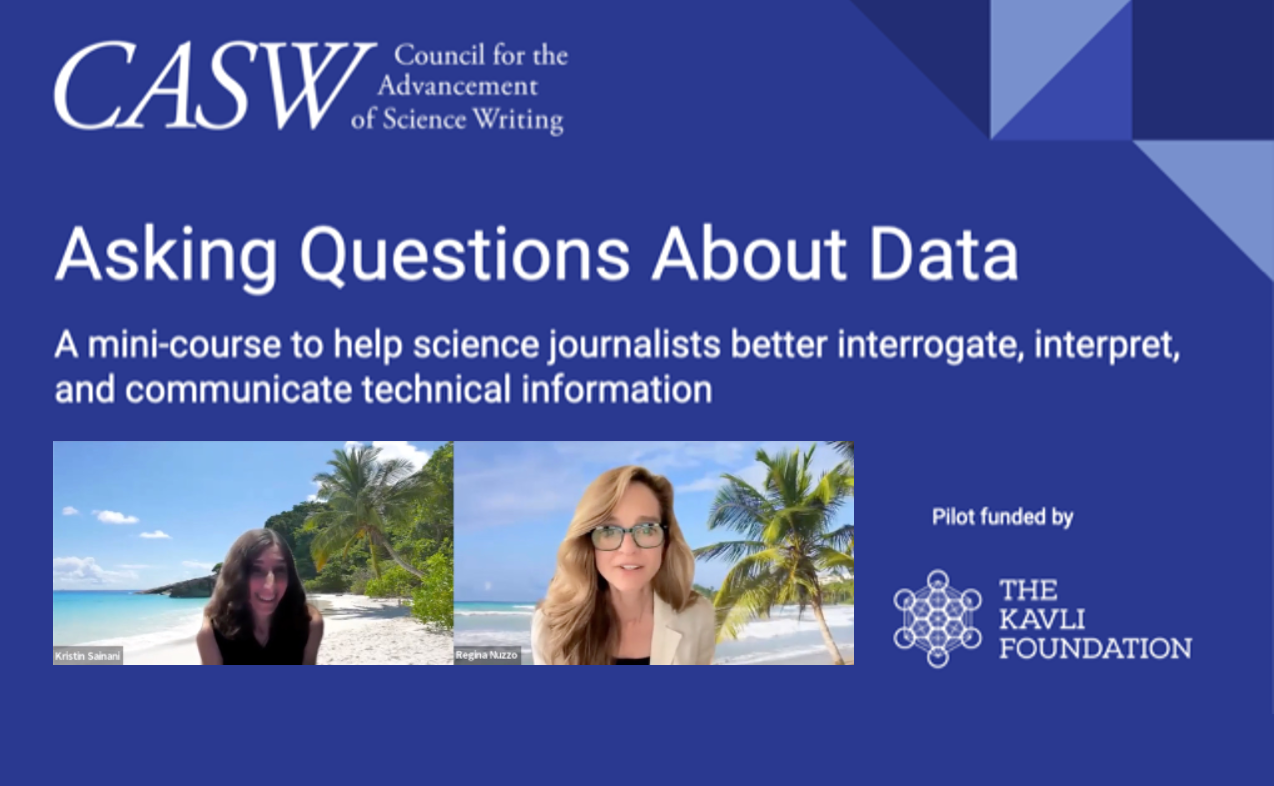
Pilot statistics mini-course a smash hit
Interpreting statistical information for a general audience is a crucial skill for those who report on science, health, and the environment. Whether the topic is climate, pollution, or vaccination, many local, national and global debates hinge on data. Special skill is required to interrogate and interpret the results of scientific studies for a general audience.
Recognizing that poor understanding of statistics compromises the quality of media coverage of science, CASW embraced statistics training as a goal during strategic planning in 2019. In 2022, a collaboration with statistician-science writers Regina Nuzzo and Kristin Sainani and funding from the Kavli Foundation enabled CASW to pilot-test a video mini-course, “Asking Questions About Data,” in the fall of 2022. Presenting case studies in a lively podcast-style debate format reinforced with problem sets that students could complete at their own pace, the two instructors showed journalists how to spot spin, fraud, and sloppy work and explain the strengths and weaknesses of new scientific results.
Twenty-two students, including 12 participants in the National Science-Health-Environmental Reporting Fellowship program, gave the course a rousing endorsement in an evaluation of the pilot. Asked whether the course had been useful, one participant wrote, “I am already using the information I learned in my pieces on science studies, and I plan to keep using these skills to my advantage as a journalist for every science piece I write going forward.”
CASW is now working with the instructors on a proposal to expand the course, offer it more widely, and explore the concept of a data-reporting credential. We think CASW co-founder Victor Cohn, author of the canonical text News & Numbers, would be happy to hear that.